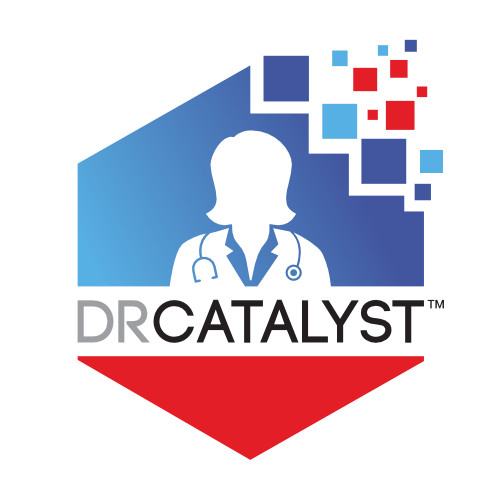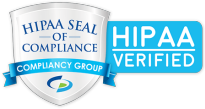Keeping Up With Increased Billing Demands in Healthcare

As the heartbeat of healthcare, medical billing ensures financial stability and quality care. But with rising patient numbers, ever-changing regulations, and inflation outpacing wages, are you ready to tackle the complexities and keep your facility thriving? While some of these changes signify progress in healthcare, they also pose challenges to managing the associated billing processes.
One of the most important things to consider in today’s healthcare industry is scalability. Adapting to increased billing demands in healthcare is paramount for providing quality patient care. As patient volumes rise, particularly during peak seasons or periods of heightened demand, healthcare facilities must be able to scale up billing processes to handle the influx efficiently.
Remote medical billers offer a scalable (and affordable) solution to this growing problem.
Failing to adapt to these increased demands can lead to delayed reimbursements, revenue loss, and strained resources.
Medical Billing Challenges
Increasing Number of Patients
The increasing patient load strains healthcare providers' resources and amplifies the complexity of medical billing procedures. Each patient encounter generates a cascade of administrative tasks, from verifying insurance coverage and documenting treatments to submitting claims and reconciling payments. As patient volumes soar, healthcare organizations grapple with processing, tracking, and managing a deluge of billing data while striving to maintain accuracy, compliance, and efficiency.
Changes in Patient Responsibility
Copayments refer to the fixed amount insured members must pay for covered services when receiving care, typically determined by their insurance plan. Deductibles represent the amount individuals must pay out of pocket for services before insurance coverage kicks in. Higher copayments may discourage patients from seeking necessary treatment, leading to fewer patients and reduced revenue. Fluctuating deductibles may result in delayed or incomplete payments from patients, further straining providers financially.
Why Copay and Deductible Structures Change
Rising healthcare costs compel insurance companies and employers to adjust copays and deductibles to manage expenses and maintain profitability. Additionally, changes in healthcare regulations and policies at the state and federal levels can influence copay and deductible structures. For example, changes in healthcare legislation or the introduction of new insurance mandates may necessitate adjustments to copay and deductible requirements to comply with regulatory standards.
Medical Billing and Inflation Pressures
As prices for goods and services rise across the economy, healthcare costs inevitably follow suit, exerting pressure on patients and providers alike. Inflation's impact on healthcare billing manifests in several critical areas, exacerbating existing challenges and introducing new complexities to the billing landscape.
- Medical supplies costs
- Equipment costs
- Staffing costs
These factors put pressure on operating expenses, squeezing profit margins and eroding bottom lines. Moreover, inflationary pressures can impact reimbursement rates from payers, including government programs and private insurers, leading to stagnant or even reduced payments for services rendered.
How to Adapt to Changes in Copays and Deductibles
Strategies for Staying Updated
Healthcare providers must stay updated on copay and deductible changes to ensure transparent patient communication, accurately estimate costs, and facilitate informed decision-making.
Here are several strategies for healthcare providers to stay updated on copay and deductible changes:
- Regular Training and Education: Organize regular training sessions and educational seminars for billing and administrative staff to familiarize them with changes in copay and deductible structures.
- Stay Informed through Insurance Networks: Maintain strong connections with insurance networks and payer organizations to receive timely updates on changes to copay and deductible structures.
- Monitor Industry Publications and Updates: Stay informed about industry publications, newsletters, and regulatory updates from government agencies such as the Centers for Medicare & Medicaid Services (CMS) and the American Medical Association (AMA).
Tips to Cope with Inflation in Medical Billing
Healthcare organizations must employ strategic approaches to navigate the complexities of medical billing in an environment marked by inflationary pressures. By implementing negotiation tactics, cost-effective practices, and technology integration, providers aim to mitigate the impact of inflation on medical billing and sustainably manage financial challenges.
- Negotiate Contracts: Healthcare providers must proactively negotiate contracts with insurance organizations and other payers to ensure fair reimbursement rates that account for inflationary pressures.
- Implement Cost-Effective Practices: Healthcare organizations can use affordable methods to manage resources better and spend less. This approach includes streamlining administrative processes, reducing overhead costs, and maximizing operational efficiencies to offset the effects of inflation on medical billing.
- Utilize Technology Solutions: Leveraging advanced technology solutions such as electronic health record (EHR) systems, revenue cycle management software, and billing automation tools can streamline billing processes, improve accuracy, and reduce administrative overhead.
Strategies for Keeping up with Increased Billing Demands
Maintaining increased billing demands in healthcare requires efficient processes, effective technology utilization, and skilled personnel. Here are some strategies:
Continuous Staff Training and Education on Billing Procedures
Provide comprehensive training to billing staff on coding updates, billing regulations, and software usage. Regular education sessions ensure staff competency and efficiency.
Regular Audits and Assessments of Billing Processes
Stay updated with changes in billing regulations, coding guidelines, and payer policies. Regularly review and update billing processes to align with industry best practices and compliance requirements.
Hire a Virtual Staff

Once you’ve exhausted other solutions and still need to make ends meet, virtual medical biller can play a crucial role in meeting medical billing demands. By working remotely, they offer flexibility and scalability to healthcare providers, allowing them to adapt to fluctuating workloads and staffing needs. Virtual medical staff are skilled in using billing software and electronic health records, enabling them to efficiently process insurance claims and invoices. Their expertise ensures accurate coding and billing, reducing errors and minimizing claim denials.
Additionally, virtual medical staff can handle tasks like verifying insurance coverage and detailed benefits, following up on unpaid aging claims, and obtaining prior authorizations while freeing the clinic staff to focus on patient care. Overall, virtual medical staff provide a cost-effective solution to the complex rise in medical billing demands, improving efficiency and revenue generation for healthcare practices.
Read: The Benefits of Outsourcing Medical Billing for Healthcare Providers
Partner with DrCatalyst
DrCatalyst offers a much-needed respite from the woes of medical billing. With unmatched expertise and a team of dedicated medical billing professionals, we ensure accuracy and efficiency in managing electronic billing processes, relieving healthcare providers from the burden of these demanding tasks. This method translates into minimizing errors and maximizing revenue for our clients.
Our highly rated remote staffing solutions catalyze efficiency and productivity. Tailored specifically for medical billing, they help streamline workflows and enhance productivity, leading to faster processing times and improved financial outcomes.
We commit to staying ahead of the latest regulatory changes and compliance requirements in the healthcare industry. Our billing practices adhere to the highest standards of integrity and legality, minimizing risks and ensuring compliance with all relevant laws and regulations.
Contact us for a free demo to learn more about our remote medical billing solutions!
Useful Links
Contact
3100 Carr 199, STE 202
San Juan, PR 00926-7660
United States
Useful Links
DrCatalyst | All Rights Reserved.
Contact
3100 Carr 199, STE 202
San Juan, PR 00926-7660
United States
Useful Links
DrCatalyst | All Rights Reserved.













